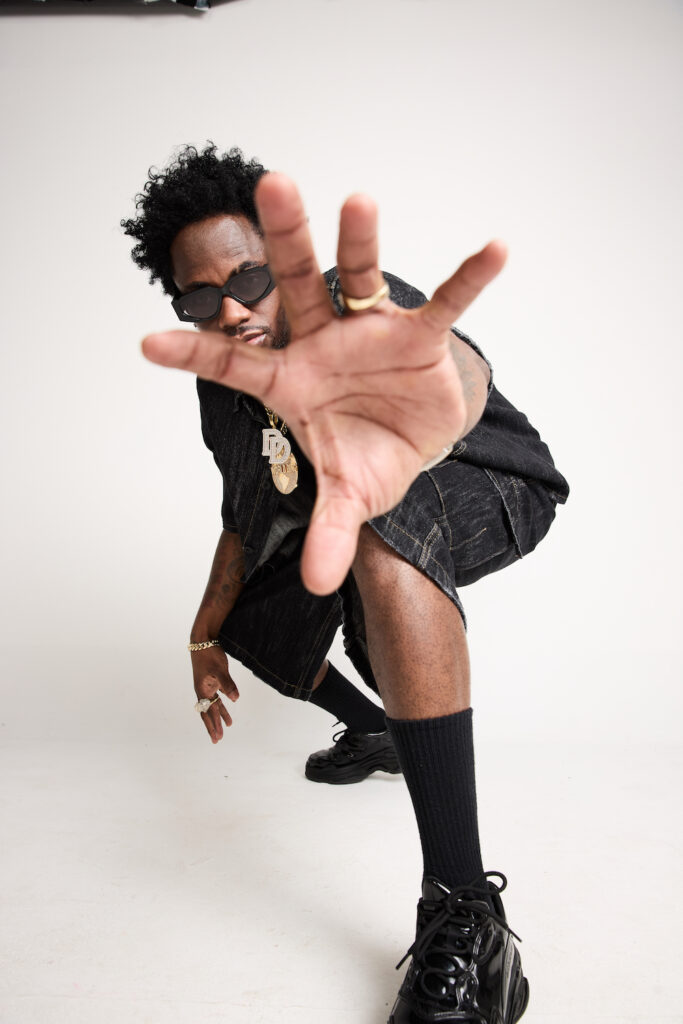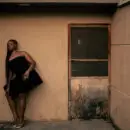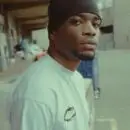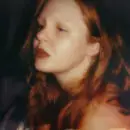DING DONG INTERVIEW: THE DIVINE TIMING OF A DANCEHALL LEGEND 2025 INSPIRING INTERVIEW

DING DONG INTERVIEW: In the world of Dancehall, few artists have managed to move the culture, both literally and figuratively, quite like Ding Dong. More than just a musician, the Jamaican star is a dancer, choreographer, and cultural force whose rhythms and iconic moves have become staples from Kingston to the global stage. His enduring influence is rooted in a deeply considered philosophy of self-determination and spiritual evolution.
For Ding Dong, success isn’t just about rhythm; it’s about patience and purpose, operating on the belief that “Everything happens with divine timing.” Yet, this faith is paired with a relentless drive for authenticity and growth, emphasizing that “the best ones are the ones that come naturally” and a commitment to constantly push boundaries: “I always try to give myself new tasks, I try to reinvent myself each year.” Above all, his message is one of personal power, championing the idea that “it’s not where you come from that makes you, you make where you come from.” We sit down with the legendary Ding Dong to discuss his incredible journey, the strategic art of continuous reinvention, and how he plans to keep the world dancing to his own beat.
What made you decide to make the transition from being a dancer to being an artist?
The two entities always meet the eye. They’re always intertwined – music, rhythm, dancing, but dancing is my passion, that’s my freedom. I realised over time that you get more recognition by singing about your own dance moves than creating the dance. If you have someone to put you on a platform like, “okay, this person did this dance, I’ll take you around the world.” Your voice travels more because of TikTok and Instagram and all these things. Now you can do a dance and it goes worldwide, but your vocals travel more through radio. So I realised you get more attention and more status when you are on that recording level. That’s when I said, “okay, let me start singing my own songs and try to put my team on and create that platform for my team. I’m going to be the voice for this generation. The first song with my vocals on was ‘Wacky Dip’ with Voicemail, I did the intro and everything on it. But the first actual recording was ‘Badman Forward, Badman Pull Up’.
You have so many songs that are celebrated today and equally timeless. But what was it about that song that made it into such a timeless classic and launched your career in such a strong way?
I honestly think it was the time because everything happens with divine timing. At that time, it was close to a year after Bogle passed. When I go to a party, I look at the patron’s movement. I don’t just go to a party and say, “okay, I’m going to dance for the whole night. I look at people and how they react to certain songs. So I realised that the people dem, their body movements wanted to change from Willy Bounce because everybody was doing Willy Bounce at the time. Sean Paul, everybody was doing Willy Bounce for close to a year after Bogle had passed. I was like, the people dem want change, but they don’t have anything to change to, so I’m going to take this opportunity to start my legacy, I’m going to create a dance that everybody can do and give it a name that everybody’s familiar with at that time in Jamaica. I mean, it was daring at the time because the name is ‘Badman Forward, ‘Badman Pull Up’. It’s very daring, but I’m referring to dancing. And it’s a different topic so everybody grasped it, young people copied it. At that time it was perfect and it wasn’t anything difficult; it was easy. And the words were easy for the song. The dance was pretty easy. So with all that combined together with my personality, the production of the riddim, which is Ricky Blaze, all of that combined together make it a perfect thing.
Does the dance come first, or does the song come first, then you make the dance?
That’s one of the most intriguing questions for everybody, because everybody wants to know the creative process, but it varies. Sometimes a dance is there first, sometimes the rhythm is there before the dance. And then sometimes we create a song under it and then create the dance. It varies, because I don’t do the music program, it just comes to me. That’s why I think it’s the light and God within me that blessed me to create these things. Sometimes I don’t know where it comes from, it goes off natural vibes, I might be around you and you might do something that I like. I’ll be like, “the way you did… If you put this together, if you take that off it…” But you might do it on a riddim that’s pumping now and I’ll be like, “we need a tempo like this to do a dance like this.” So all of that, it’s a whole movement for me in terms of the idea, the creativity to create this dance. Then sometimes it’s easy because we have the dance already. Sometimes we have to dig deep to find it. Sometimes it just comes naturally. But the best ones are the ones that come naturally.
Some dances seem like an everyday move but it works when you apply it to dance.
It makes sense. I use periods to build my dances around my teammates. So we might start off by doing something and everybody’s doing it and then we add to it. But it’s the same dance, we just add two little things to it until – in the first three, four months – it develops. The dance comes in its natural form as it’s supposed to be since we started it off four months ago. So we take periods and those are the ones that stay longer, I tell you. ‘Badman Forward’, ‘Skip to my Luu’, ‘Nuh Linga’, ‘Sweep’, ‘Fling (Yuh Shoulda)’, ‘Snap It’, all of those took periods to grow, to become their full potential. So those are the ones that really need to be highlighted like that.
You’ve got a very international appeal, are you ever surprised to see how far your dance reaches?
They love me but sometimes it amazes me because I see myself as a regular kid, I’m normal to myself and my surroundings. But people see me as this huge figure so when I go to places, that’s when I really feel how they mess with me. I’ve seen TikToks showing people dance to my music everyday everywhere. Sometimes if they don’t say, “this is from the Czech Republic” or “this is from South America, this is from Latin America,” I don’t know where the people come from. So when I go to these places, like when I go to Japan and I see how they embrace me and how they love me, I’m like, “wow! Nah son, I’m a big thing.” When I go to Europe I see all these people adore me and they know every single move. In Japan, when I’m on the stage performing, if I stop to talk to them like how I’m talking to you now, they never understand a word I’m saying, I have to get someone to translate when I say, “I want them to put their hands in the air” and all of that. When I’m singing the songs, they’re singing the songs word for word, it always amazes me. The people love me and it’s a blessing to be in this position, to be able to display my talent to the world and be loved by people all across the world, just by having fun doing what I love. I appreciate it, I never take it for granted. I’m thanking God for his blessings every day, people love me across the world.
With that cultural crossover, have you ever found inspiration in an unusual place?
I find inspiration everywhere because I’ve seen things I’ve never seen before. I wrote two songs while I was on the plane to Japan. It was 14 hours from Atlanta, so I wrote two songs. I’m going to release one in a couple of days. Soon that song is going to be very, very big. When I was in Japan, I shot many videos and everything because I wanted to capture their culture and combine minds because they embrace our culture so much. With all these things, I get inspired. Europe, that’s where I found out about Afrobeats, that’s when I found out about ‘Lebe Lebe’. Everywhere I go, I try to take a part of the culture that I’m experiencing, and try to combine it with my music and my dance and my fun.
After a 25 year long career, you’d never released an album. What made 2025 the time for you to release a full body of work?
I think it was time, I’ve grown enough and I’ve gained enough fans across the world that see me as an artist not just a dancer. I’ve evolved so much as a person, I’ve grown so much as an artist, a father, as a husband, everything. Now was the time to do it, I’m fully matured now in every aspect of the music. I didn’t want to do an album where I’m rushing because I have this song, so I’m going to do an album. I wanted it to be a no skip album, so I took my time production wise, I’m the executive producer for the album. I have a lot of producers on it. I took my time with it. People look at me now as a full package, so it goes perfect with the level that I’m at now. When I used to release singles, people would say “you don’t need an album. I thought you had an album already because you have these eight mega songs.” All across the world, they thought it was an album, it was all singles. So now was the time, this experience has opened different doors. It’s wild, but I love it.
In more recent times, it’s become rarer to hear a full album from a Dancehall artist rather than singles.
Yeah I think a body of work is demanded from an artist. If you’re an artist they don’t put you in certain rooms if you don’t have an album; your name doesn’t go in certain rooms. You might have singles and everything, but if a record label should say, “okay, we’re going to sign you for this song,” they’re going to tell you, “we’re signing you for a one album deal or two album deal” and not just singles. They want an album because that defines you as an artist, your movement and everything. Personally, it puts that on you, where even when you stop making music, your album can still be selling for your children; your kids can come and benefit from it. An album for me, is more than just to give the fans a body of work. It’s a personal thing that I think is demanded from artists. It just depends on what time you do it, I think the timing is always key. Because it could pass the time that you should have done an album and no one is listening to you any more. For me, that’s more personal. I’ve travelled the world, I’ve done so many hits, I feel like my fans need a body of work where they can play 13 Ding Dong songs and vibe to them right through without skipping any. It’s the most diverse, fun Dancehall album you’ll hear in a long time. The sound, the rhythms, the vibes, the collabs; all of that is just perfect.
Was there a side of you that you hadn’t shown before on the album, ‘From Ding Dong to World Ding’?
Yes, a lot! I have to keep the authentic Dancehall Ding Dong vibes on the album, to keep you moving. But I have sections of the album where I’m chilled out, sections of the album for the females. It’s diverse, there’s Afrobeats on it.

When it comes to your dances, what’s the next legacy dance?
I love ‘Skate’, I have a song called ‘Skate’ on the album featuring Bravo Ravers. I love that song, that’s gonna be a dancing song. Also, ‘Street Jump’, a couple more but it’s the most diverse and best album. The dancing is going to be superb, I remixed ‘Badman Forward’ with a Skillibeng feature. He’s top tier, he fits within every sound, within every song. If you don’t like it, he gon’ tell you that he don’t like it. He was like, “this was my song, bro!” And within two days I got his verse back. I’m telling you, the album is fire, you gon’ be dancing, you gon’ be chilling. You can just put the album on and play the album right through with no skips; 13 tracks and no skips. You’ll be dancing, there’s driving music, pump you up music, meds that make you think, party, fun, birthday, everything. The album is going to move barriers, I think it’s my best work yet.
Is there a song that you’re most proud of, that’s your legacy?
A lot! I think ‘Wacky Dip’ is cemented in history. ‘Badman Forward’, ‘Holiday’ ‘Fling (Yuh Shoulda)’, ‘Happiness’, ‘Dweet (Genna Bounce)’, ‘Gas’ is crazy. I have so many of them, I’m blessed but ‘Gas’ is one of those songs that keeps going and going. Especially in the UK, they show me so much love in the UK with ‘Gas’. I think they own ‘Gas’, it’s officially their baby but I have a lot of them. I’m so blessed to be able to be here talking to you, telling you all of this. It shows me I did my thing in music, for the culture because these songs will never stop playing. Those big ones, ‘Holiday’, ‘Badman Forward’, ‘Gas’, ‘Genna Bounce’, ‘Wacky Dip’. ‘Watch Dem’ is a big one too, ‘Skip to my Luu’. I have so many and that’s all before the album. That’s all before an album, if you really think about it.
Does the album feel like a restart in your career?
It’s a new sound for me, talking to you now makes me realise, “wow, she’s telling you that you’re actually dope in real life.” I don’t look at the past with things that I’ve done. I always try to give myself new tasks, I try to reinvent myself each year. So each year I try to be the best version I am, I don’t worry about what happened. If I record a song today and I play it for a day or two and be like, “ok, nothing needs to be changed on it.” Then I move on from this song, I go to the next riddim; that’s how I operate. I’ll have songs in my wallet for two or three years, because they probably should have been released at the time you recorded them. Some of them are futuristic songs that go beyond time and you can release at any time. But I always give myself that reinvented feeling each year, with each song. That’s why I don’t feel like I’m doing it for a long time, I feel like a new artist everyday. The album makes me feel like a brand new artist, like I just came out. That’s the feeling that I wanted to have. If I felt like I’ve been out for years with this album, then I wouldn’t put it out. So I try to reinvent myself every year, every song, every movement, every party. If I go to a party last night, I try to go with a different energy to tap that energy from last night, tonight; that’s my mentality.
How do you feel like your heritage as a dancer taps in with that scene as well?
It’s active, when I go anywhere, the kids love me and my whole career is for them. A lot of parents love me because they can play my songs anywhere in the car while taking them to school. Parties really don’t have to skip a song or skip a line because I do clean, fun music. I’m always going to attract the younger generation so I think they’re going to resonate with this album perfectly; It’s going to fit perfectly with them. I have a big dancing arena, big dancing, following, so it’s going to be all over TikTok.
You’re an artist from the garrison but your music also has this global appeal and ageless appeal. How do you balance both sides of yourself?
It’s the hardest thing. This is probably one of the best questions ever asked, it’s one of the hardest things to do because I have to be mindful at all times. I have to be mindful of my surroundings at all times. I have to be mindful of everything that I see in my actions. When I’m recording a song, it becomes so automatic to me. If I’m singing a song and I say a word and I have to change that word. Or if I’m going to put something up on Instagram or on TikTok, I have to be mindful because my fanbase is going to be kids, kids are going to listen to this and they’re going to follow you because they like you. But at the same time, I have to keep it street to still be connected with the street, because I see a lot of people mess up when they get so corporate and international that the people within the streets don’t want to hear them. They’re not connected with them anymore. That’s why I have to do the music in my way, that’s why nobody does music like Ding Dong, because Ding Dong does the music where it’s connected to the streets and to the kids, and to corporate and to the elderly people at the same time. I’m probably one of the few artists that can go to a street party and have that big impact, go to a kid’s party and have that big impact, go to a corporate function, have that big impact, and have a house party and have that big impact. I don’t think many other artists can do that, so I’m blessed to be that few percent that can do that; I’m blessed. That’s one of the best questions ever asked.
You’re mapping all these different global locations at the same time as well.
It’s very complex to tap into African and European people. It’s probably easier because they see me through a lens, they see me through Instagram and TikTok so they mesh with me that way. But in real life endeavours, I’m a role model to a lot of kids, a lot of youths. But I’m still street enough to be amongst street people. So sometimes to create that balance, it’s never easy. It’s like mixing hot water with cold water. But with the knowledge of God and the strength of God, I’m doing it. It gets really hard sometimes. But because people are listening, young kids are listening differently. When we were their age back then we listened differently. You have to find a way to let them hear you, so you still have to keep your values and the respect you have for life.
How have you managed to have such a long legacy and stayed consistent with music?
The last one is so key: you don’t settle, you don’t get complacent, you don’t get comfortable. I give myself new goals. If my dream in life was to own a house and a car and a family, when I get those things, I give myself new goals. I’ve never gotten complacent, I always kept my drive because I’m a workaholic, I go to the studio every single day. My wife complains about it a lot, but I tell her that’s just me. I love to work, I don’t like to be sitting down. I find pleasure in recording, dancing. They say “do what you do for fun and you never work a day in your life.” So for me, it’s what I do. I give myself tasks and when I find that song, I’m excited. I get butterflies when I’m going on certain stages. The passion drives me deeper.
I think that’s why Jamaican music stands out more than anywhere else because there’s a huge competitiveness. The fact that everyone pushes each other, adds a huge competitiveness.
You got a new artist every single hour. Every hour in the daytime, you’ve got a new artist and they’re talented; we’re so talented. Then we have platforms like TikTok and Instagram that you don’t have to have $1 billion behind them. They just need the right viral occasion and people can make a name. Then I look at Sean Paul and Shaggy, I look at their work ethics, they’ve been around forever and they’re working like they’re 12 years old, like they have rent to pay. I can’t let them out work me! I’m influenced by those names because I see they go so hard. They tour, they record, they keep in tune with everything that’s going on. So if they’re going to be here forever and they’re still doing it the way they are doing it now, you can’t out work me, I’m going to do as much.
If you had to pick one Jamaican legacy artist to work with, who would it be?
Bob Marley would have been great. Just imagine Bob Marley doing a dancing-type song, imagine how many barriers that would have broken. If Bob Marley singing “one love, one heart” crosses so many cultures and so many people’s lives, just imagine if Bob did a song that you’re dancing to. That would be my dopest, ultimate collab if it could happen. Internationally, I would go with Chris Brown because he’s a dancer doing music, I’m a dancer doing music. He’s the best at what he’s doing, I’m the best at what I do in my culture. If we combine those two entities, those two worlds together and bring those two cultures together, I think that would be phenomenal.
The dance off alone would be crazy.
He messes with me too, he came to Jamaica and did his concert in Jamaica. The Chris Brown show in Jamaica, a year or two ago, I ripped that stage, I came out with a hundred dancers. It was probably one of my best performances ever. The intro on the stage, he had to open up his eyes wide, like, “who is that guy?”
If someone was writing your chapter in the Dancehall Hall of Fame, how would you want to be remembered?
The kid from the ghetto who broke barriers, who crossed the old criticism and the holding down structure of “you can’t do this” or “you can’t do that.” My life, on the whole, is a testimony that it’s not where you come from that makes you, you make where you come from. You can be anything you want to be regardless of the hand that you’ve been dealt. Don’t look at where you’re coming from with the zinc over your head, because I’ve been through that and everything, and I’ve become and emerged on top of all the rough with soothing waters and roses petals and everything that’s given in life and I’m still going. Do what you love doing, don’t let no one tell you that you can’t do it or can’t make it; it’s there for everybody. It’s just how hard you work towards it and do what you do to put a smile on people’s faces and love in people’s hearts. That’s what I do with my music and dancing, that’s what I want to be remembered for.
Photo by Will Twort
Interview by Lily Mercer





[INTERVIEW] WAVE MONTEGA HAS BIG THINGS COMING
[INTERVIEW] RUSS MILLIONS
[INTERVIEW] RUSS MILLIONS
[INTERVIEW] RUSS MILLIONS